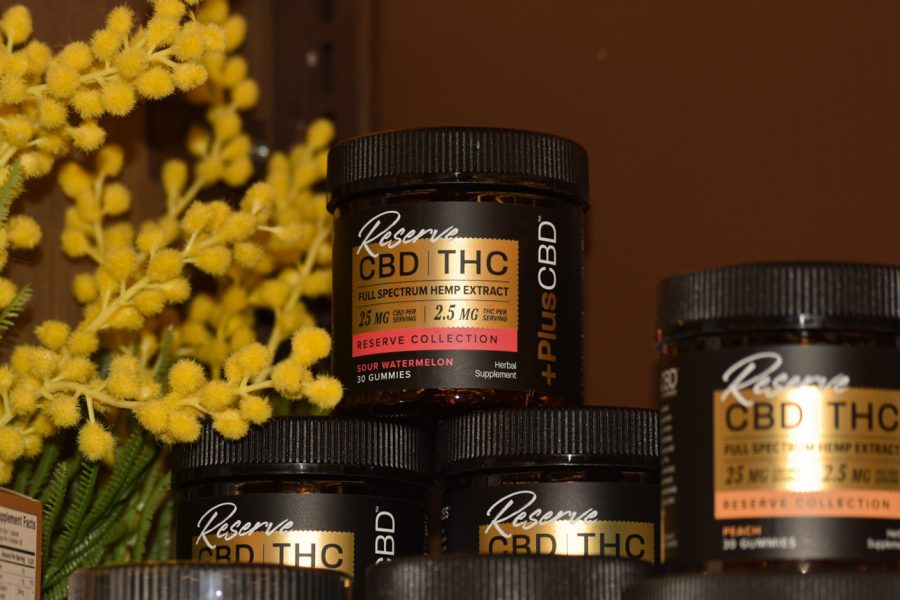CBD products popular but unproven
Though CBD products have grown in popularity, research shows that the drug has few known effects.
November 30, 2022
When she was in middle school, Haley Sturgill recalled that she was “immersed” in CBD products. With her friends and families, she said she would get drinks or lip balm with CBD.
“I remember when we were really young, like sixth grade, we thought it was really funny, and this one time some girl drank some CBD drink and pretended to be high, which is a misconception, because THC is the thing that alters your mind, not CBD.”
THC, an abbreviation for tetrahydrocannabinol, is the main psychoactive component of marijuana, which comes from the cannabis plant. It alters brain function and can affect mood, appetite and sensory perception, along with impairing judgment, coordination and reaction time, according to the National Institute on Drug Abuse. CBD, or cannabidiol, is another substance present in cannabis, but it does not have the same effects as THC.
Even though most products containing CBD do not have government approval, and there is little scientific evidence clearly establishing the benefits of their use, the popularity of CBD has skyrocketed in recent years, with the compound appearing in everything from body lotions to sports drinks to topical oils. CBD is claimed to help relieve anxiety, reduce inflammation and reduce muscle pain, among other conditions, but the Food and Drug Administration has not vetted these claims, and UChicago research shows they have little effect.
Haley is familiar with the products because her mom is a psychiatrist who sometimes uses CBD in her practice. In middle school, Haley occasionally took CBD supplements for a soothing effect, believing they’re not as strong as anxiety medications and could have fewer side effects.
“It’s kind of like taking an all-natural calming supplement that will help you with anxiety, but it’s not very strong,” Haley, now a junior, said. “It can maybe calm you, for some people; for me, it doesn’t really do anything.”
Harriet de Wit, a research professor of psychiatry and behavioral neuroscience at the University of Chicago, ran an experiment studying the effects of CBD on 36 healthy adults.
“We measured how the drug made them feel, how it made them behave on emotion tasks, and we measured their heart rate and blood pressure,” Dr. de Wit said.
The results showed that the CBD had few effects on healthy adults.
“Basically, we found that the drug did nothing,” she said.
Dr. de Wit said that although not much is known about CBD, the drug isn’t toxic. She still recommends caution when looking at CBD products, since the effects of the compound are largely unknown.
“Look very carefully at what the claims are that people make on those bottles and at the doses that they administer and the purity of the product,” Dr. de Wit said. “Be skeptical.”
The FDA recognizes that not much is known about CBD and that some companies are marketing CBD products that may put the health and safety of consumers at risk. Dr. de Wit said the CBD product’s source can cause the drug to be dangerous, even if pure CBD itself has little emotional effect on humans.
“I don’t think it does much harm,” Dr. de Wit said, “so you’re not going to hurt yourself, unless you’re getting it from a questionable source and there are other ingredients in there that aren’t good for you.”





























































